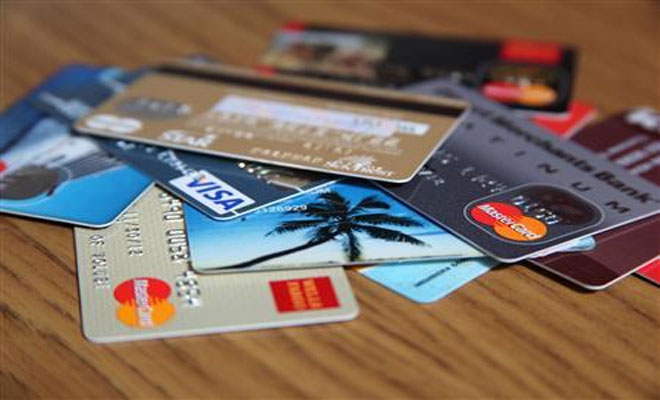Last Updated on Apr 3, 2020 by James W

For most of us, a credit card is that magic bit of plastic money that saves us from the rough patches of the month. It allows you to simply walk into a store and grab what you need without worrying about that paycheck the accountant said was on the way. A credit card provides a safe way of doing things, notably because of the fraud control initiatives most companies set in motion as well as its ability to limit what you can spend at a time. However, letting your credit card debt pile up can pronounce the beginning of disaster, which is why you need to find ways of handling it all.
Here are some pointers.
Pay Off Your Balance on Time
Failing to pay off your balance at the end of every month invites trouble, as some companies might choose to penalize you. You will need to understand that credit card companies handle interest in different ways; for example, there are those that charge penalties on the unsettled debt only e.g., if you had used 200 dollars and paid off 190 dollars, then you get charged an interest on the unpaid 5 dollars. Others will slap you with the full amount regardless of what you paid off-e.g., if you owed 200 dollars and paid of 190 dollars, you end up paying interest on 200 dollars instead of the unpaid 10 dollars.
If you are lucky enough not to be penalized financially for defaulting, then you will still suffer a pile up of lien because of not making consistent payments.
Create the habit of paying off your credit card debts at the end of every month because every time you default, your credit worthiness takes a hit. You might in future find yourself unable to secure a loan, mortgage or even another credit card due to your history. If you cannot pay the full amount every month, then at least make an effort to pay in instalments because that will go into the record and might save you someday. There are also companies that give you a minimum amount to pay against your debt and if yours does, then take it.
Take Advantage of Credit Card Sign up Offers
When you sign up for a credit card, you need to know the bonuses that come with the card. For example, there are companies that will charge zero or very little for balance transfers. This works for a stretch of time, usually 6 months. There are plans that allow you a percentage cash bonus on every single purchase you make, and the process is automated. Still, some credit card companies help you out by making sure that you won’t need to pay any annual fees, which gives you extra funds to cover a bit of your debt every month. The best thing about some of the plans here is that rewards and bonuses will not become obsolete as long as you keep your credit account active and running. Choosing the company with the best sign up offers guarantees a high level of flexibility when taking care of debts that come along the way.
Get Educated
It’s all fun and games when moving from store to store with a trolley of supplies, but the real pain comes with the realization of what a credit card debt really means. There are 5 factors that determine your credit score, but we will take a look at the two most prominent ones; payment history and amount owed. The two ideals are inexplicably tied; if you have a poor payment history, then you are going to have a high amount of funds owed to your creditors-in this case, the credit card company. These factors conspire to lower your credit score, which essentially means that you get locked out of important loans, phone contracts and mortgages for a long time.
Without a doubt, the best way of avoiding a credit card fiasco is spending what you can afford. You will need to know that at the end of the day, your paycheck needs to be able to cater for all the expenses your card runs up. Prioritize your needs and shelve any project or activity that seems beyond your financial reach. A good strategy would be to never spend more than 30% of your credit limit in a month; for example, if your limit is 2000 dollars, don’t go over 600 a month in expenditure.




